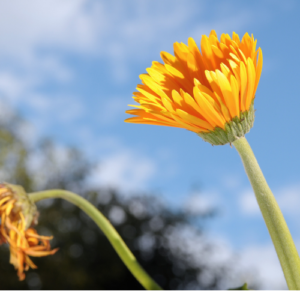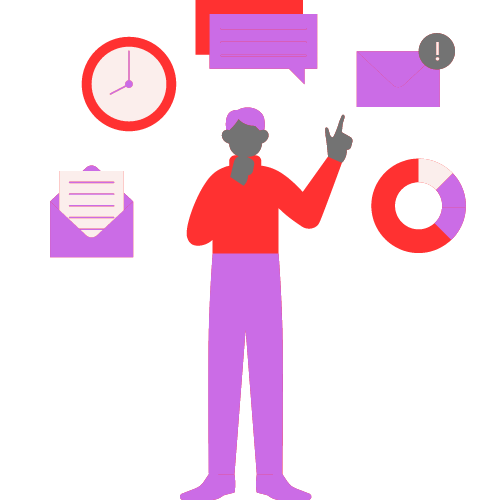“Living with the immediacy of death helps you sort out your priorities in life. It helps you to live a less trivial life.” ~Sogyal Rinpoche
Priorities…Sogyal Rinpoche suggests that knowing that our lives are temporary is crucial because it can help us find meaning in the here and now.

Table of Contents
Rinpoche says that keeping death at the forefront of one’s mind can help one prioritize life’s most important tasks.
We are more likely to live our lives with meaning and purpose if we accept the fact that our time here on Earth is finite. Perhaps we’ll start paying better attention to our interactions, productivity, and development. We can choose to put our interests, our families, and our communities first.
On the other hand, if we trick ourselves into thinking we have a lot of time, we might become bored or worried about things that don’t matter. In our pursuit of happiness and fulfillment, we may put too much stock in things like money, social standing, and other superficial indicators of success.
Facing death head-on can help us appreciate life more fully and direct our energies more wisely. It’s possible that we could grow kinder, hardier, and more present in our lives.
Do you typically lay in bed and think briefly about your day before drifting off to sleep? I was! And I will admit that there were times when I was unhappy with how the day had gone because of the choices I had made.
You can only make positive changes in your life by shifting your focus.
“I wish I could have done that differently.” “I did that task or activity on autopilot,” and even “I need to prioritize my things if I want to have my life organized…sort of,” I frequently heard myself say.
When I was having those thoughts, I also thought, “I love my bed, and I would never want to leave again.” However, I eventually came to terms with the fact that I had to get up and do my thing the next day, and that when nighttime rolled around, I’d ask myself the same questions.
Because, you see, despite my best efforts, I always felt like my time management skills were eluding me. And the issue was that I had to pay attention to my attention rather than time management.
Neglecting to Practice Mindfulness Every Day

I had to do the laundry, fold the laundry, do some work, exercise, eat healthily, take my dog for a walk, shop for new pants because I have a job interview in two days, stock up on groceries, update my laptop, delete all the photos I have from my vacation to Bodrum in 2020, and of course, go to bed early.
At night, I would spend at least half an hour mulling over my day’s emotions, debating whether or not I had made the right decision, and second-guessing my own judgment skills.
Yes, it’s a draining experience. It’s not just me, either; I can guarantee that. We really need our days to be longer than they are, perhaps 26 hours instead of 24.
But then I’d definitely ask for a 28-hour workday, because 26 just isn’t enough… Because of this, it’s clear that the cycle will keep going.
Mindfulness Practice Can Change Your Life
Instead of waiting until the end of the day to reflect on the day’s events, I decided to do so as they were happening. I’ll be honest; that was a startling realization.
Somewhere along the line, I had an epiphany that everything I’m experiencing is irreversible, and that if I don’t grasp it and fully comprehend the here and now, I’ll lose all of these moments without even realizing it.
It’s not like I suddenly realized this. However, I was able to get myself thinking again, and that’s a big step forward. What if, all these years, I’ve been wrong about how to manage not only my time but my life itself?
What if I had let myself get stuck in the “why didn’t I do this in that way?” loop for the rest of my life? This mindset is a kind of mentality. Moreover, what can I do now that I know this? I can’t go back to the way things were.
The practice of mindfulness, which entails paying attention to the here and now, can help with this. While it’s true that everyone has their own unique experience of “now,” this doesn’t guarantee that anyone is practicing mindfulness or that this awareness is resulting in a reordering of priorities.
Some of us have a hard time staying in the here and now, and when we do, we often just retreat into our minds and start having conversations with ourselves. I have actually said out loud, “I missed you,” when we started talking again after a break.
But in reality, you and I are capable of practicing mindfulness. The salesman at the kiosk can also pay close attention to his customers.
The bus driver is concentrating on the road. Why? Because being present is a quality we all share. In a manner similar to that of animals. It’s hardwired into their makeup, and it can be hardwired into ours as well if we give it the chance.
Meditation on the Present Moment

Being mindful also means not thinking too much about the past or making plans for the future.
So, mindfulness not only helps you keep your feet on the ground, but it also brings your priorities into clearer focus. I no longer want to be anxious, especially if I can teach myself to be aware. Being mindful has helped me reduce my anxiety to a much more manageable level.
Despite being in the eye of the storm at times, I am aware, physically more at ease, and at peace.
Effective time management or setting priorities?
Stop worrying about time and start prioritizing your own needs. It’s ridiculously straightforward but surprisingly challenging.
Mindfulness helps you see that you can’t make other people happy by forcing your own agenda on them and instead encourages you to prioritize your own hopes, dreams, and promises.
In addition, you’ll realize that you can’t spend your entire life racing against the clock, worrying that you’ll never get ahead, or, even worse, thinking that you should be thankful for always being busy.
We also tend to accept that not getting enough sleep, being anxious, and being under a lot of stress are “normal” for us.
Keeping your priorities in mind and prioritizing your tasks:
Being mindful is just one way to feel like your priorities are in order. Yes, this aids greatly; however, you should also make mindfulness a top priority.
Do you have any sleep today? Have you eaten today? How much self-love did you show today? How often did you try to be mindful? You need to put in the time and effort necessary to simply be, and you will get there.
You will give up on trying to juggle too many tasks at once and putting off important tasks until the last minute once you realize that it is more efficient to focus on a single task at a time, especially if doing so allows you to complete it more quickly and frees up more time for the things you really care about.
It’s crucial to set priorities:
What about your list of things to do? The one that grew from a single page to ten in order to fully cover your life for the next three years, if you will. Alas, that serves no purpose now.
As you practice mindfulness, you’ll notice that your expectations change, too. When you make being mindful of the present moment your top priority, you automatically give more weight to other aspects of life that may have gotten less of your attention before.
Take control of your focus:
Everything around us seems to be vying for our attention at the same time. To top it all off, we’ll actively let them win and, in some cases, actively seek out additional opportunities because no diversion is sufficient. You could almost say it has the same effect as a drug.
Our minds and hearts are like a bowl of scrambled eggs until they are fried up at the end of the day. How would you feel if you made the decision to do the exact opposite and started focusing on individual tasks? Do you want to give it a shot?
Experiment with these methods and see if they help you maintain your concentration.
Which is more important, managing your time or your focus?
The real question is: how do you keep track of time? You might be thinking that it’s a load of hooey right about now because you can’t speed up or slow down time and you don’t control it.
I’m curious, though, how you control your focus. You decide how much focus you give an issue at hand.
After that, select and implement your strategies for your priorities:
Make a list of possible values:
For starters, you’ll need a set of values to use in your prioritization process.
You need a priority framework before you can even begin to think about setting priorities. And the best way to construct that prioritization framework is through one’s own values.
If personal independence and exploration are highly important to you, for instance, you might arrange your work priorities in that way. You’ll start thinking about going into business for yourself and won’t settle for a job that gives you two weeks of vacation.
Similarly, if helping people in developing countries is important to you, volunteering may take precedence over a boozy backpacking trip.
Priorities can’t be set without values. The values you hold most dear will play a significant role in determining your decisions.
In order to make decisions that are in line with your values, you should first define them.
Practice mindfulness in your daily life.
People who want to get better at setting priorities should put a lot of effort into becoming more mindful.
By making a strong emotional connection to the here and now, you are able to direct your attention solely to the moment at hand. This focus will help you feel better, think more clearly, and get more done.
How does the practice of mindfulness aid in setting priorities?
Simply put, being in the here and now helps us see what we really want.
Taking your mind off of things you’ve done in the past and things you’ll do in the future helps you understand the problems you’re facing right now. Also, this new way of looking at things will help us set priorities that work in the here and now.
Mindfulness is a skill that can be developed through numerous methods.
You should try to meditate first thing in the morning. Try out some yoga sessions. Put that time spent waiting to get somewhere to good use. And most importantly, remember to bring your full attention to everyday tasks.
So, mindfulness can help you appreciate the here and now and, as a result, help you set priorities that fit your current way of life.
Distinguish between the “trivial many” and the “vital few.”
Essentialism, Greg McKeown’s best-selling book from 2014, is all about the benefits of focusing on a small number of high-priority goals rather than spreading yourself too thin.
With this in mind, he writes:
Living a deliberate, intentional life is essential to the Essentialist philosophy. Essentialists aren’t impulsive decision-makers; rather, they systematically separate the important few from the unimportant many.
When it comes to setting priorities in life, this “essentialist” approach works very well.
Learn to identify the “vital few” clients, projects, or business deals that will have the greatest impact on your career. Maybe your most important tasks involve dealing with the clients who make up 80 percent of your business’s revenue.
When considering what to prioritize, you may want to begin with these few essentials.
In other words, employ the 80/20 rule (or the Pareto principle) to zero in on the factors that have the greatest impact on your success (professionally and personally). After you’ve defined these components, you can use them to establish priorities.
Ignore the “any benefit” approach.
The belief that they will bring some sort of benefit often justifies the setting of incorrect priorities.
The “any-benefit approach” is what Georgetown University computer science professor Cal Newport calls this method.
According to his 2016 book Deep Work, he explains:
Unfortunately, this strategy overlooks the many drawbacks of the tools in question.
Newport employs this strategy to explain the widespread social media addiction that has emerged in recent years. They spend all day on Facebook because it’s entertaining, which has many drawbacks, including a loss of time and focus.
In the same way, priorities must be set.
Since there is one benefit, we decide to prioritize it above others. That perk obscures all the drawbacks, making us oblivious to the genuine effects of the priority.
Here’s an example: one of my friends is currently residing in Germany. Many visitors to Germany are aware that the Autobahn, the country’s highway system, has virtually no speed limits along its vast lengths. He finally bought a Porsche to quench his need for speed.
I plan to prioritize quickness when shopping for my next car. Everything he said made sense.
After driving the car for a few weeks, he concluded that it was both wasteful and inconvenient. You could argue that he should have known better in advance, but he valued speed above all else.
Therefore, the only use for his Porsche was on the Autobahn at high speeds. He should have considered all the risks, but instead he spent his 80,000 euros on something he later came to regret.
Therefore, don’t make a choice based on a single benefit if you wish to set better priorities. Conduct a complete analysis.
Do not put off the tough choices until later.
Get started on your path to better prioritization by making some challenging choices.
It’s effective to prioritize by taking on the most challenging decisions first, as this will help you better understand the lesser ones.
Consider your biggest outlays first when rearranging your financial priorities. Making the decision to downsize from a $2,000 apartment, for example, isn’t easy, but it will give you a solid foundation on which to build your other prioritization efforts.
Obviously, lowering your monthly rent payment is a top priority. Having this as your overarching purpose, however, can help you put efficiency, minimalism, and sustainability first in your daily life.
Recognize the value of compromise.
Last but not least, the ability to compromise is crucial when setting priorities.
Lifehacker’s Allison Renner puts it this way:
It’s important to be firm when you need to be, but it’s also important to choose your battles.
Therefore, when contemplating the establishment of new priorities, consider whether or not it is necessary to insist on having things your way, or whether or not this is a battle you want to fight.
Think about whether the benefits of putting responsibility first outweigh the risks to your relationship with your boss. For example, if you want more responsibilities but your boss doesn’t agree, you might want to think about this.
Your boss would like you to keep your current position and may be willing to offer a perk if you do.
When this happens, it’s time to weigh the advantages of a compromise against those of setting priorities.
So, create a list of your top priorities.
Priorities aren’t limited to things that absolutely must be done this second. Consider compiling a list of both immediate and far-off goals. But you’ll approach them in a unique way: with knowledge of the present moment.
Concluding Remarks:
Acceptance is a key component of mindfulness. In other words, the long list is not accepted as part of a reality that will occur today, tomorrow, in two weeks, or in two years. What if it doesn’t work out?
That’s fine, too. Meditation on the present moment has helped you realize that maybe you didn’t need to do those things after all.
However, mindfulness practice is what ultimately led you to this realization. You were able to look at what was going on inside of you without deciding what was right and wrong.
The question “What should I focus on today?” can help. or “In what direction do I want my energy to go to?”.
These questions, while basic, will get you thinking about where you should put your efforts and where you’re better off leaving things alone.
Take care..
Letting Go! 90 Methods To Ease Emotional Pain
16 Mindful Ways To Stay Present & Focused In a Digital Word
10 Signs That Everrything Is Okay With You ( Or Me)
Predictions And Comments For The 12 Zodiac Signs In April 2023
otes in our website: https://psytify.com/quotes/
More quote resources: https://en.wikiquote.org/wiki/Main_Page

“Thought is only an abstraction representing a fraction of what is.” ― Lenfantvivant
”Widen The Window”(2019) Book Summary
Summary of “Atomic Habits” (2018)

